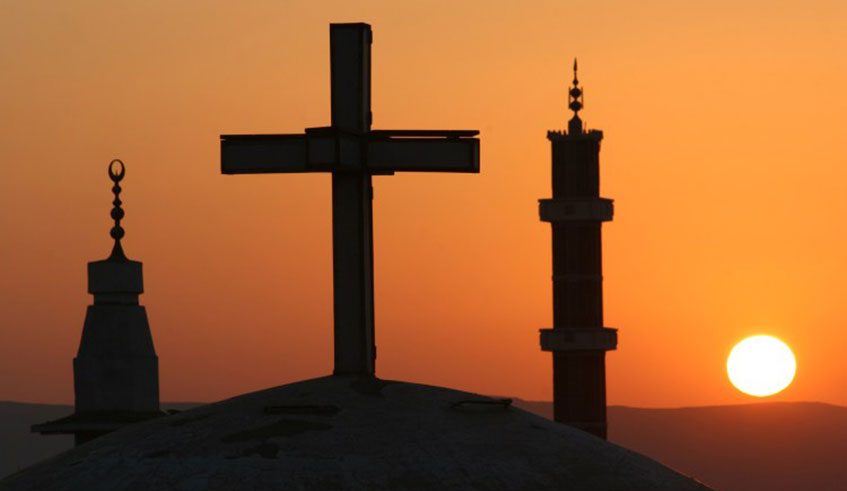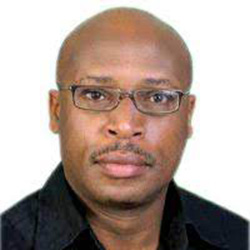

Churches play an important social role, enhancing a sense of community and providing a place of comfort for many.


What is probably surprising is that in about forty years’ time – by 2060 – countries in East Africa – Tanzania, Uganda and Kenya – will feature in the top-ten list of countries with the highest population of Christians in the world.
The just-released Pew Research Centre report indicates that Tanzania will have 117.9 million Christians by the year 2060, followed by Uganda with a population of 96.2 million and Kenya 91.7. They take seventh to ninth positions in that order.
Ethiopia, EAC’s immediate neighbour to the north, closes the top 10 list with a projected population of 87.6 million Christians by 2060.
Nigeria tops Africa with a projected Christian population of 174.2 million, securing the third position on the list after the United States which will lead 262.3 million and Brazil second with 186.5 million.
What does all this mean?
Note that this is in a situation where religious belief is in steep decline in developed countries such as in Europe.
Why, therefore, is religiosity is in ascendance in the underdeveloped world, specifically in Africa and Asia?
Lest one assumes this is a Christian thing, the trend is also observable in Islam. Some of the countries expected to have the highest Muslim populations are either in South and Southeast Asia or in sub-Saharan Africa.
Nigeria will once again rank third globally in the top-ten list with a projected Muslim population of over 283 million by 2060. Ranking sixth, Egypt will be home to about 124.4 million Muslims.
As to why the decline in Europe and elsewhere such as Japan where on 4 per cent of the population claims to be religious, there is a particularly inescapable observation; that there is a link between the steep declines in population growth and increasing secularisation in these countries.
It is evident that "declining population growth accompanies women’s emancipation and entry into the workforce, and usually results from a decline in traditional religious-based concepts of gender roles.
"In turn, smaller families reduce their ties to organized religious institutions, as fewer children go through religious school and First Communion classes. Ordinary lay people increasingly define their values in individualistic and secular terms, and are more willing to oppose churches on social and political issues of gender and morality.”
Note that this is not in any way to belittle religion, but Africa is on the same secularising path in that trends in population growth and family do correlate with religious attitudes. By many estimates, it is just a matter of time before Africa starts to turn secular, arguably after 2060 after reaching its zenith with the highest global population.
Before then, however, there’s a possible development link explaining why religious Africans could increase in numbers.
Ironically, the United States, despite it being the richest in the world and with a high standard of living, may illustrate this link – precisely because it’s set to lead with the highest population of Christians by 2060.
It has been pointed out how Japan and countries in Western Europe have universal healthcare and extensive social safety nets, as opposed to the US.
"The Japanese and the Europeans know their governments will come to their aid in their hour of need. But the laissez-faire attitudes of American society make people’s futures less certain and the belief in a benevolent God more attractive.”
This is plausible, and if this can be said of America, what of Africa where there not only exist few if any social safety nets, but often racked by political and economic instability?
Scientists have suggested explanations for our natural predisposition to believe, and for the powerful role religion seems to play in our emotional and social lives. It is demonstrable that the less stable a life situation may be the more likely people are to seek comfort in faith.
Thus, taking the American example, it not only reveals religion as a form of coping mechanism but, to relate it much of Africa, it may also point to the dire development situation that hastily ought to be addressed.
It is comforting this is already happening. Note, for instance, how the religious population projections in Africa coincide with AU Agenda 2063, which aims to transform Africa into the global powerhouse through inclusive and sustainable development by the year 2063.
One may not conclude without mentioning how the church is infested with charlatans preying on people’s faith, or how some churches have been flagrantly been breaking the law.
Many around Africa applauded Rwanda’s sanction of religious entities that saw some churches and mosques briefly close down for failing to comply with building regulations and for noise pollution.
I buy the argument that in as much as churches are important social institutions, they should be regulated.
The views expressed in this article are of the author.


